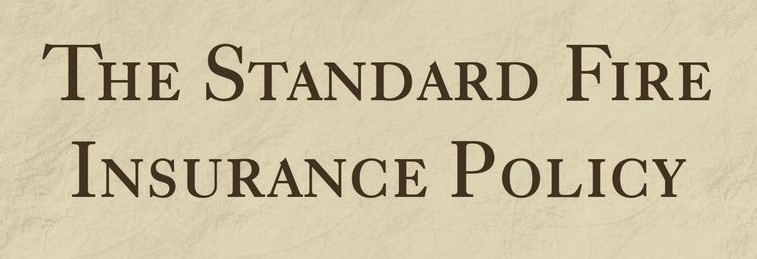The first standard fire insurance policy was mandated by Massachusetts in 1873.1 For those interested in the older standard insurance policies, Rough Notes published a book briefly discussing the early history of standard fire insurance policies called The Standard Fire Policy.2
I have been researching older insurance literature and cases, trying to find the first reference to an actual appraisal clause. This is the result of comments made to my post, Will Arbitration Be the New Appraisal?:
I agree that a zillion cases and modern commentators say what the benefits are of appraisal.
But where did the clause first come into use? What did the insurance literature of the day say why it was being included? Those sources are what I am looking for rather than people’s opinions.
For example, why did the insurance industry make an all risk personal lines policy? You and others could guess about the reason. Or, you could go back to actual source material that can be found to explain why.
So, when you say the clause was first put into policies because……what is your basis for saying that? What did you read to teach you why the clause was placed into property policies?
I have reached out to Bob Norton and Jonathan Wilkofsky, who have extensively taught and written about appraisal clauses. Bob has sent me a slide that refers to a mid-18th century case that we are trying to locate. Older marine insurance cases and some policies discuss “appraisement,” but that was the process of determining the value of a ship after arrest. That appraisement process is not the modern property insurance appraisal but is more akin to appraising real estate. Marine appraisement is still in use today and discussed in admiralty cases.
When studying the first standard fire insurance policy, the clause was one of arbitration determining all rights under the insurance contract and not limiting the panel to determining just the value of the loss:
In case any difference of opinion shall arise as to the rights of the parties under this policy, the subject thereof shall be referred to three disinterested men, the company and the insured each choosing one out of five persons to be named by the other, and the third being selected by the two so chosen, and the decision of a majority of said referees shall be final and binding on the parties.
The first New York Standard Fire Insurance Policy did not have this language. Instead, it contained the appraisal clause, which is close to the modern appraisal clause format. I wish I could find a discussion about why New York adopted its language rather than the more expansive arbitration language found in the Massachusetts form.
Please note that language in the old Massachusetts form uses the word “referees.” Today, Massachusetts has a unique process known as “reference,” which is controlled by statute. We discussed this process in Appraisal in Massachusetts is a “Reference” Proceeding.
Nevertheless, while my note about arbitration potentially becoming the new appraisal generated a great deal of questions from readers, it is important to note that historically an arbitration format was in the first standard fire policy about 150 years ago. The idea to resolve disputes in the insurance policy through arbitration is not new.
Thought For The Day
Research is to see what everybody else has seen, and to think what nobody else has thought.
—Albert Szent-Gyorgyi
______________________________________
1 Commonwealth of Massachusetts, House No. 277, An Act to establish a Standard Form of Insurance Policies. Apr. 4, 1873.
2 The Standard Fire Insurance Policy. Joseph B. Wood (Revised by). Rough Notes. 1930.





